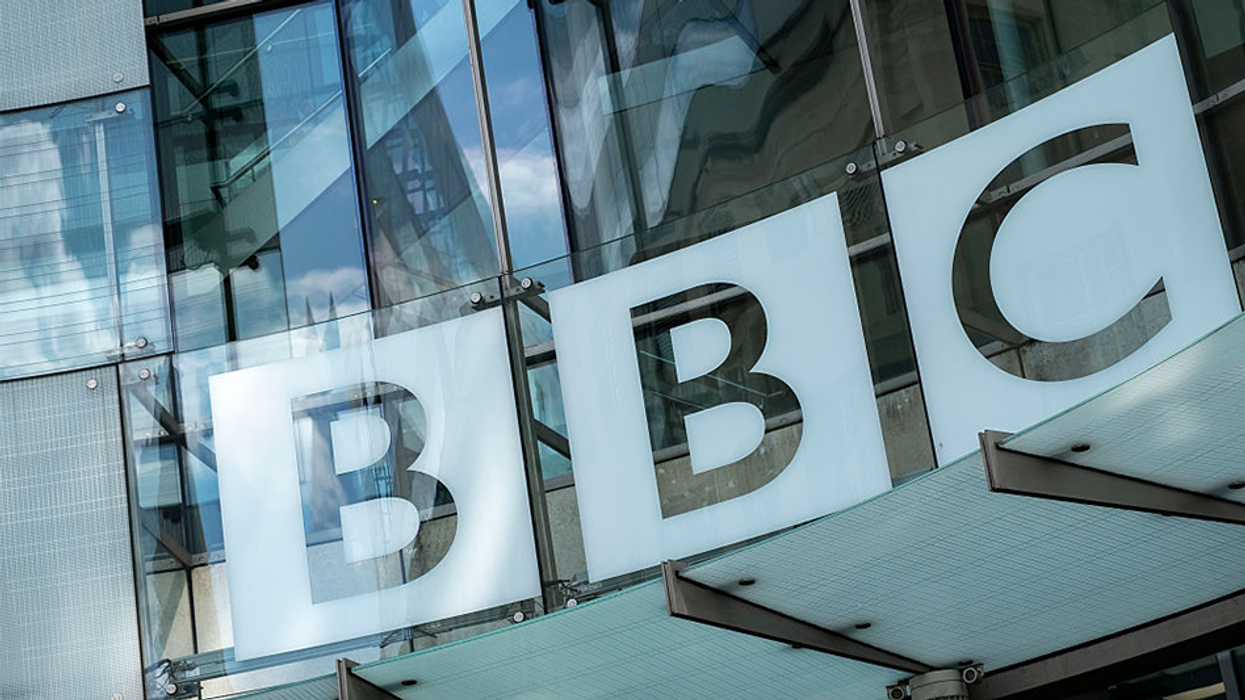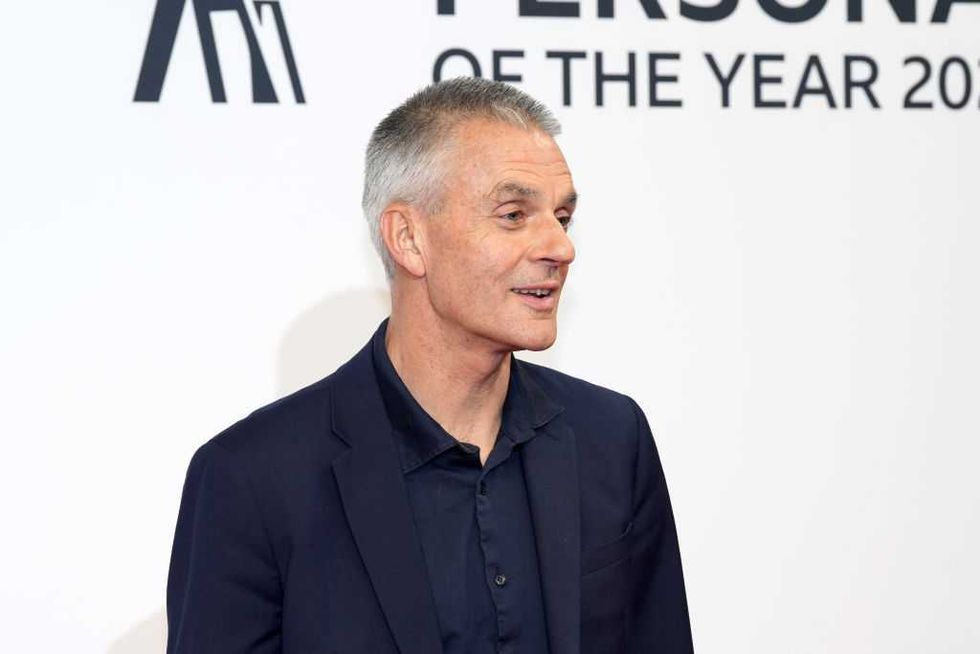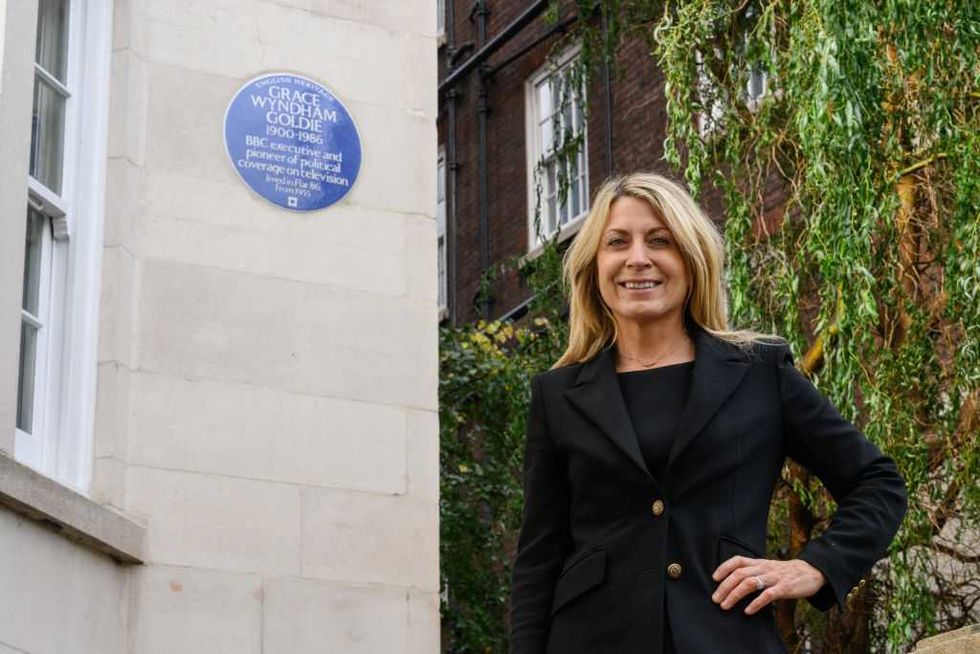
Photo by Mike Kemp/In Pictures via Getty Images

The edit made it appear as if Trump was leading protesters to the Capitol to 'fight like hell.'
An internal memo has rocked the leadership at the British Broadcasting Corporation.
Last week, another outlet in the United Kingdom revealed that the memo had accused the BBC of deceptively editing footage of President Donald Trump's speech on January 6, 2021.
'We fight like hell, and if you don't fight like hell, you're not gonna have a country any more.'
The Telegraph reported that Michael Prescott, a former independent external adviser to the BBC's Editorial Guidelines and Standards Committee, wrote a dossier on the BBC's alleged bias before leaving his position in June.
The report accused the BBC of splicing together Trump's comments on Jan. 6 to appear as if they were made in the same breath, even though the remarks were about 54 minutes apart.
As Blaze News previously reported, the edit in question appeared on the BBC's one-hour Panorama special, titled "Trump: A Second Chance?"
The documentary featured a clip purporting to show Trump saying, "We're going to walk down to the Capitol, and I'll be there with you. And we fight. We fight like hell."
In reality, Trump's actual statement was:
"We're gonna walk down, and I'll be there with you. We're gonna walk down. We're gonna walk down, any one you want, but I think right here, we're gonna walk down to the Capitol, and we're gonna cheer on our brave senators and congressmen and women. And we're probably not going to be cheering so much for some of them, because you'll never take back our country with weakness. You have to show strength, and you have to be strong. We have come to demand that Congress do the right thing and only count the electors who have been lawfully slated. Lawfully slated. I know that everyone here will soon be marching over to the Capitol building to peacefully and patriotically make your voices heard."
The edited clip also featured Trump's words from about 54 minutes later, when he was discussing election integrity.
"Most people would stand there at 9 o'clock in the evening and say, 'I wanna thank you very much,' and they go off to some other life, but I said something's wrong here, something's really wrong, can't have happened, and we fight."
"We fight like hell, and if you don't fight like hell, you're not gonna have a country any more," Trump added.
Now, BBC Director-General Tim Davie and CEO of BBC News Deborah Turness have both handed in their resignations.
RELATED: BBC allegedly deceptively edited Trump’s Jan. 6 speech into riot lie

Davie issued a memo to his staff on Saturday and claimed that it was completely his decision to step down.
"I wanted to let you know that I have decided to leave the BBC after 20 years. This is entirely my decision," Davie wrote, according to the Hollywood Reporter.
The director said he had been reflecting on the "very intense personal and professional demands" that come with his role and claimed that "in these increasingly polarized times, the BBC is of unique value and speaks to the very best of us."
Without directly mentioning the video editing controversy, Davie called the BBC a "critical ingredient of a healthy society."
'As the CEO of BBC News and Current Affairs, the buck stops with me.'
Turness, however, was openly self-deprecating in her decision to resign.
"The ongoing controversy around the Panorama on President Trump has reached a stage where it is causing damage to the BBC — an institution that I love," she wrote in a memo. "As the CEO of BBC News and Current Affairs, the buck stops with me — and I took the decision to offer my resignation to the Director-General last night."
She added that "in public life, leaders" must be "fully accountable, and that is why I am stepping down."
Still, Turness said despite the mistakes, any "allegations that BBC News is institutionally biased are wrong."
RELATED: The UK wants to enforce its censorship laws in the US. The First Amendment begs to differ.

As the BBC is a government-run institution, the ruling Labour Party chimed in on the controversy.
"I want to thank Tim Davie for his service to public service broadcasting over many years. He has led the BBC through a period of significant change and helped the organization to grip the challenges it has faced in recent years," said U.K. Culture Secretary Lisa Nandy.
Nandy said the BBC charter, which defines "Object, Mission and Public Purposes" for the organization, will be reviewed to help the BBC "adapt to this new era" and secure its role at the "heart of national life" for the future.
Like Blaze News? Bypass the censors, sign up for our newsletters, and get stories like this direct to your inbox. Sign up here!
Andrew Chapados